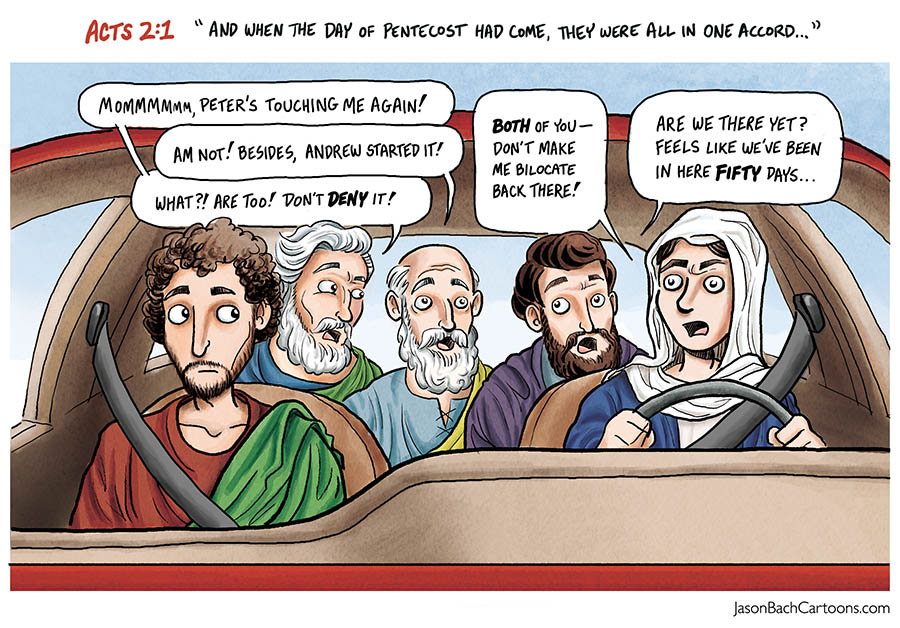Monday Message, May 23, 2021

KNOW
Parish Check in #19 tomorrow. Click here for link.
Great webinars this week and into June. See the Institute events page for complete details.
Tomorrow we will discuss the following post-pandemic considerations:
Mandates for masks are expiring, social distancing is being reduced, and the obligation to return to Sunday worship has been reinstated. Time to take a deep breath and a step back.
It might be tempting to return to the way things were before anyone ever heard of COVID-19 without evaluating what we have learned.
Respectfully, we ask you to consider the following as you plan.
- Know the guidelines. Be sure to check with local government and the diocesan website for the latest requirements regarding social distancing, cleaning, and masks.
- Mask the unvaccinated. If your catechists, volunteers, or very young children are not vaccinated, they should wear a mask. Safety of one another takes precedence. Be aware of what Catholic and public schools are doing and follow their lead.
- Let go. If, once upon a time, you offered something in your parish or structured the program in a specific way it was less than effective, consider letting go. Now is the perfect time to assess the effectiveness of your structure and the way you engage young people and their parents.
- Keep what works. Think back over the last 15 months about all the things you tried and all the ways you reached out to families. Make a list of everything that was successful. Keep those components. Remember that cheaper is not always better. Formation takes an investment of time and resources.
- Focus on Encounter. Your focus for fall 2021 should be all about encounter. How can you foster an encounter between young people and the person of Jesus Christ? How can you reach out to parents and welcome them back to the faith community? Now is not the time to focus on requirements – it is the time to welcome people home. Host sessions just for parents and give them a chance to tell their Covid stories. Introduce your catechists and just let parents be present in and around the church building without too much of an agenda on your part.
- Share stories. In many cases, young people will not have been together for quite some time and studies show they have developed anxiety as a result of the pandemic. Give time for young people to talk about the pandemic. Let them list the names of anyone they know who has died from the Coronavirus and pray together for all that was lost. Remember that you are not counselors or therapists, and confidentiality does not exist between catechists and students. Take your lead from the young people and listen to their stories.
- Parents as partners. Parents should be encouraged to be engaged with their children’s faith formation. This does not mean, however, handing parents a textbook and an assignment. It means accompanying parents along the journey. Be ready to offer specific and manageable tasks that parents can accomplish at home with their children. Studying alongside children during Zoom course whet the appetite of many parents. Don’t let the desire for knowledge wain.
- Form a planning team. Now is the perfect time to form a team for ministry. Don’t go it alone. Invite some parents and even some older adolescents to help you plan not just to reopen, but to reimagine and re-energize all that you do to form young people in the faith.
- Hybrid is okay. If you used the term hybrid a year ago, you were likely talking about a program that was partly online and partly in person. Why not think of hybrid differently – partly in person and partly as a family. Doing so allows you to encourage parents to continue to share their own faith story with their children. Using zoom once in a while is acceptable, but nothing substitutes for in person relationships. Remember, technology has its limits when it comes to formation.
- Communicate often. One of the Silver Linings of the pandemic is that we changed the way we communicated with our families. Many parishes began communicating more regularly with parents to share resources and offer suggestions on sharing their faith at home. Do all you can to continue communicating on a regular basis to maintain connections with your families. Be imaginative beyond emails, such as using social media platforms and short videos; for example, offer text alerts, parish web site links and/or a parish specific family formation web page.
- Involve the pastor. Outside the home, the parish is often the primary place for the evangelizing work of the Church among young people and their families. This much we know. Collaboration among the school principal, the catechetical leader, and the pastors is especially important if the overall catechetical efforts are to be integrated into the life of the entire parish.
- Small groups work. For hundreds of years, the early church flourished because the faithful met together in small groups. Why not return to our origins and encourage young people and their families to meet together in small groups to unpack the Gospel, share their faith journeys and grow their faith. The pandemic has taught us that formation can be asynchronous as well as synchronous.
- Celebrate Catechists. Many parishes lost catechists during the pandemic. See this as an opportunity to invite in a new way by recruiting new leaders into ministry. Ask young people and families who inspires them. Ask parents who among their peers would be an engaging instructor. Be ready with a job description, outlining the role of the catechist and your expectations for their ministry. Be sure to include the benefits received, including the joy that comes from inspiring young people.
- Focus on the Eucharist. Many of the families that have been absent from our parishes have also been absent from Sunday Eucharist. Consider inviting one of the priests in your parish to host a learning liturgy to explain what happens at mass. Use the online resources from The Leadership Institute to supplement such an event. Make a concerted effort to connect every gathering to Sunday liturgy by mentioning the gospels, something from Father’s homily, or even a song that moved you.
- Pray often. It is one of life’s greatest challenges to be in the world but not of the world. Use this time of renewal to renew your own spiritual practices. Commit to spending five or ten minutes every day in prayer. Read the scriptures. Listen to the daily readings online. Pray for your catechists and young people by name. Pray always and in all ways.
Pro Tip
Check in over the Summer. A virtual meeting, a postcard via US Mail, or even a phone call would go a long way to connecting with families as you prepare to welcome them back to faith formation. Many of the children will receive letters from their teachers as the new year approaches. Why not do the same thing for families in your parish. Use this opportunity to remind them of the Mass times in your parish and why you are so excited to see them return.
REFLECT
“Have a bias towards action – let’s see something happen now. You can break that big plan into small steps and take the first step right away.” – Indira Gandhi
LAUGH

